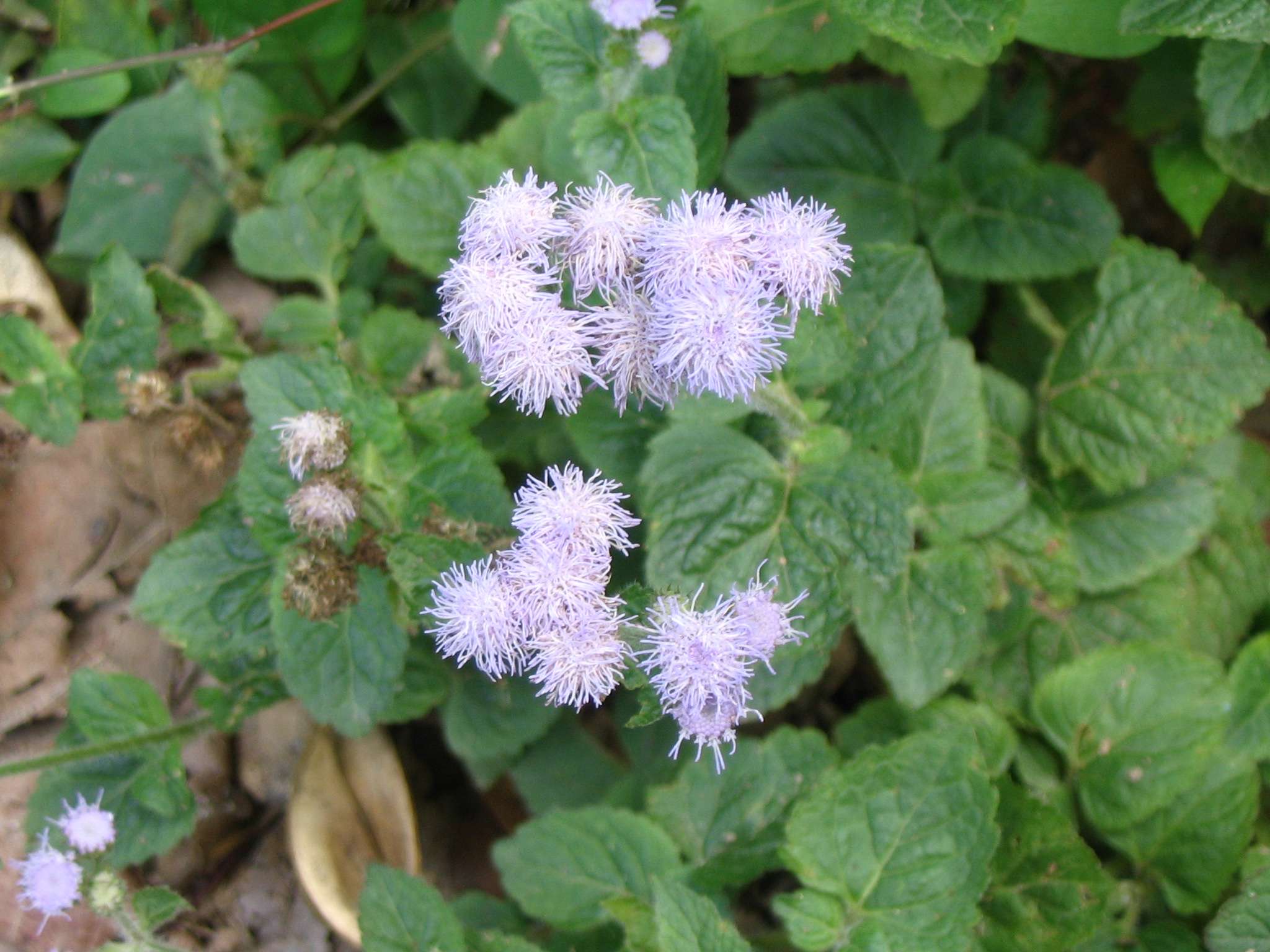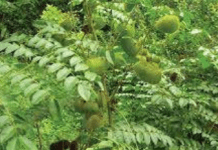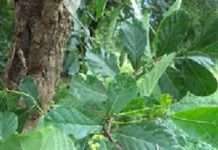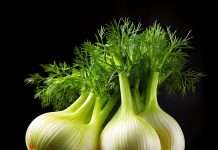
Ageratum conyzoides Linn.(Family: Asteraceae), commonly known as goat weed or appa grass, is widely distributed over the tropical and subtropical regions of the world. It is an annual branching herb which grows up to 1m in height. The stems and leaves are covered with fine white hairs. It is called kuka in Hausa, agadi-isi-awo-ocha or akwukwo nwa osi n’aka in Igbo and imiesu in Yoruba. Other names are Billygoat weed, ageratum, invading ageratum, chickweed, adwolo (Lango), kimavi cha kuku (Kiswahili), and gathenge (Kikuyu).
Constituents
- conyzoides contain a wide range of chemical compounds, including alkaloids, flavonoids, saponins. Volatile oil, phonic esters, chromenes, benzofurans and terpenoids. It also contains phytoestrogens, chemicals that act somewhat like the hormone oestrogen.
Conyzoides leaves contain crude protein, carbohydrate, potassium, calcium, magnesium, iron, zinc and phosphorus. The plant yields essential oil, consisting of ageratochromene, dimethoxy – ageratochromene, cadinene and caryophyllene.
Preparations
The leaf, root and flower of the plant may be used. The plants may be used as sap powder, decoction or macerate.
Pharmacological actions and medicinal uses
Ageratum conyzoides has been reported to be used as folk medicine in different countries, for treating burns, wounds, skin disorders, headaches, fever, pneumonia, gynaecological diseases, leprosy, snakebites, rheumatism, inflammations, stomach ailments like parasites, colic, diarrhea, dysentery, used as a painkiller during childbirth. It is used as traditional medicine for the treatment of numerous ailments as a result of its analgesic, antifungal, wound healing, anti-inflammatory, haemostatic, smooth muscle relaxant and anticoagulant activity.
There are many reports on folk and traditional uses for sleeping sickness and mouthwash. A study demonstrated that A. conyzoides exerts its important anti-inflammatory properties by inhibiting leukocyte influx and protein. A. conyzoides plant has been documented to have cardiovascular depressant activity.
- conyzoides may be an effective treatment for reducing symptoms of BPH in healthy men, in part, through inhibition of 5-alpha-reductase enzyme. In alternative medicine, ageratum is used against epilepsy. Animal experiments show that it has anti-inflammatory, anti-oedematous, anti-allergic effects in both acute and chronic.
In Kenya, East Africa, it has been used in traditional medicine for antiasthmatic, antispasmodic and haemostatic effects. The leaf is used to aid conception, used for haemorrhoids, and used intra vaginally for uterine bleeding. Decoction is used for toothache.
Adverse effects
- conyzoides is often one of the first species to colonise degraded areas and so able to prevent other plants from establishing. It is also said to be poisonous. It has been listed as a noxious weed in South Africa. Noxious weeds are prohibited plants that must be controlled. They serve no economic purpose and possess characteristics that are harmful to humans, animals or the environment).
Economic uses and potentials
As a common agricultural weed, it can contribute to soil fertility. Pharmaceutical companies are being run in Brazil using A. conyzoides as raw material, with recommendations from the Brazilian Drug Centre.
It is also used for agricultural purposes as manure, insecticide, pesticide, herbicide, nematicide, fodder, etc. In China, it is widely intercropped in the citrus orchard to control pests and weeds.
References
Baral, D., Chaudhary, M., Lamichhane, G., & Pokhrel, B. (2022). Ageratum conyzoides: A Potential Source for Medicinal and Agricultural Products. Turkish Journal of Agriculture – Food Science and Technology, 10(12), 2307–2313. https://doi.org/10.24925/turjaf.v10i12.2307-2313.5146
By Pharm. Ngozika Okoye MSc, MPH, FPCPharm
(Nigeria Natural Medicine Development Agency)
Email: ngozikaokoye@yahoo.com











